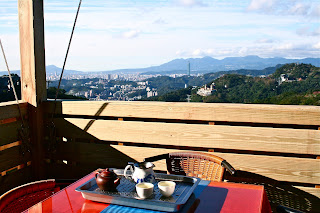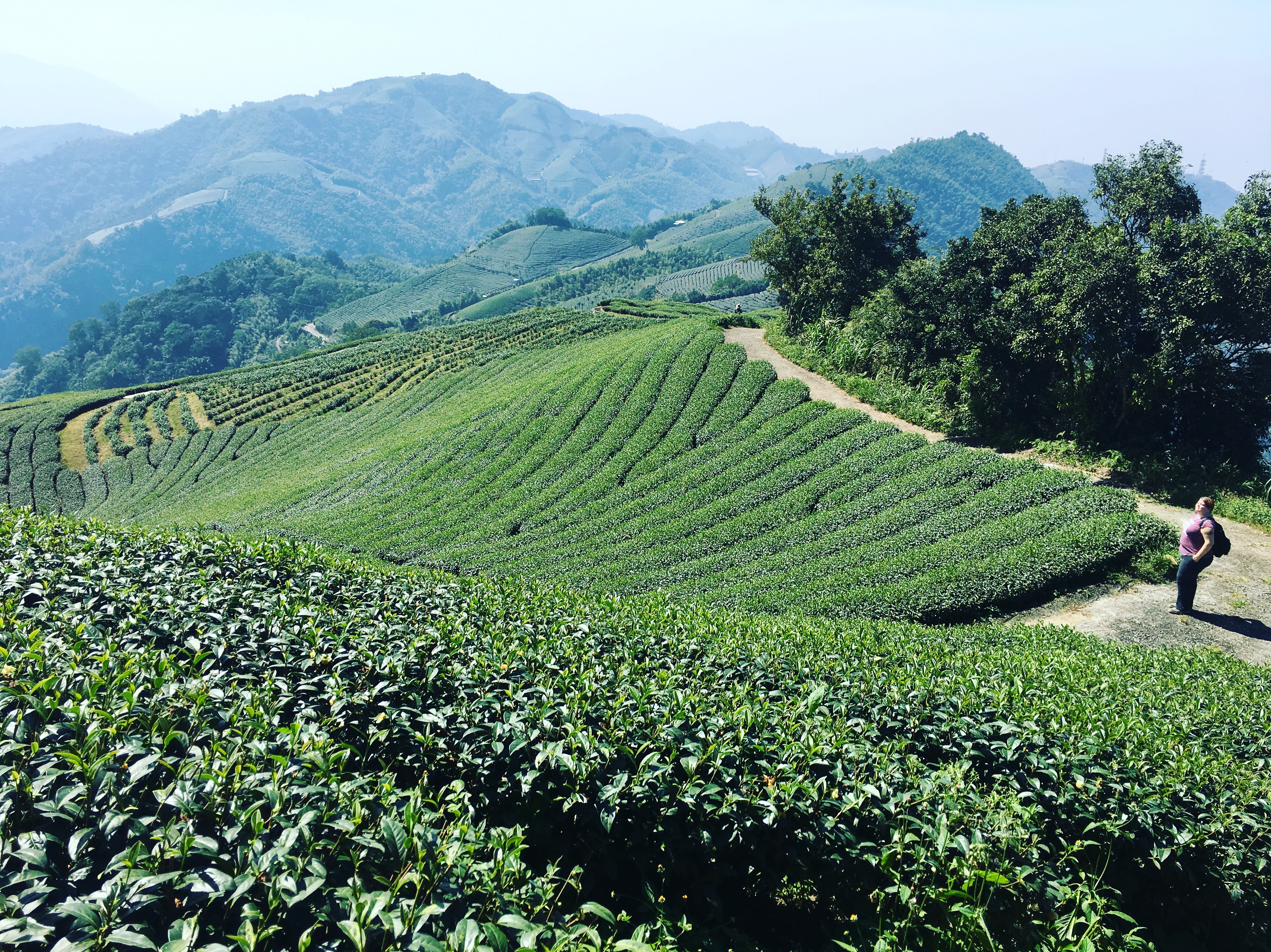 |
| The view from above Longxing Temple |
You know when you just have to stop talking about politics for awhile and write about something that makes you happier? Well, I'm at that point now.
I actually travel around Taiwan fairly frequently; I just don't always get around to writing up my trips on time. Sometimes, I don't write at all - I've probably banged out 5 or 6 posts on Tainan City at this point; I'm not going to write another one unless I do something unusual or new there. There's a stereotype that Taipei-based foreigners rarely leave the city - I can't speak for everyone, but I can say that that accusation doesn't apply to me.
So, I'd like to tell you about our trip to Taiping (太平) - not the mountain in Yilan County (though I've been there too and will write about it eventually), but the small town up the mountain from Meishan in northern Chiayi County. The town itself is tiny and hard to get to - though there is a bus from Meishan - and itself not worth a long trip. But if you have a car and head to some of the hiking in the area, it can be a worthwhile weekend with beauty on par with Alishan, but none of the crowds.
 |
| See? |
We'd actually come up from Donggang, where we went to the opening day of the 2018 King Boat Festival (another thing I didn't blog as I've blogged it twice already, and written about it for an anthology as well as Taiwan Scene), stopping in Chiayi for some turkey rice. We hired someone to drive us as I was the only one with an international permit, and it was agreed that it wasn't fair for me to do all the driving (though to be honest, I could have).
You'll find in Taiwan that much cheaper than chartering taxis, if you can tap into local networks, there are always retired folks happy to drive you around at reasonable rates. Ask me privately and I'll pass along this guy's information (he doesn't speak English, though).
The road up to Taiping takes you up the Taiping 36 bends on the 162甲 - 36 consecutive hairpin turns with stunning views. I didn't take any photos as I was carsick.
 |
| Amber Coffee |
Our first stop before heading to our homestay in Taiping was Amber Coffee (琥珀社咖啡莊園) on Meihua Road - a tiny one-lane mountain road, so drive carefully. The owners of Amber realized that the climate up here, good for growing tea, was also great for coffee. The coffee is excellent, and they have tea oil thin noodles and tea oil waffles as well, with indoor and outdoor seating. The view is lovely and it's a worthwhile stop. They also sell coffee beans, tea oil and other products and have a playful black dog.
 |
| Amber Coffee |
 |
| The road to Amber Coffee |
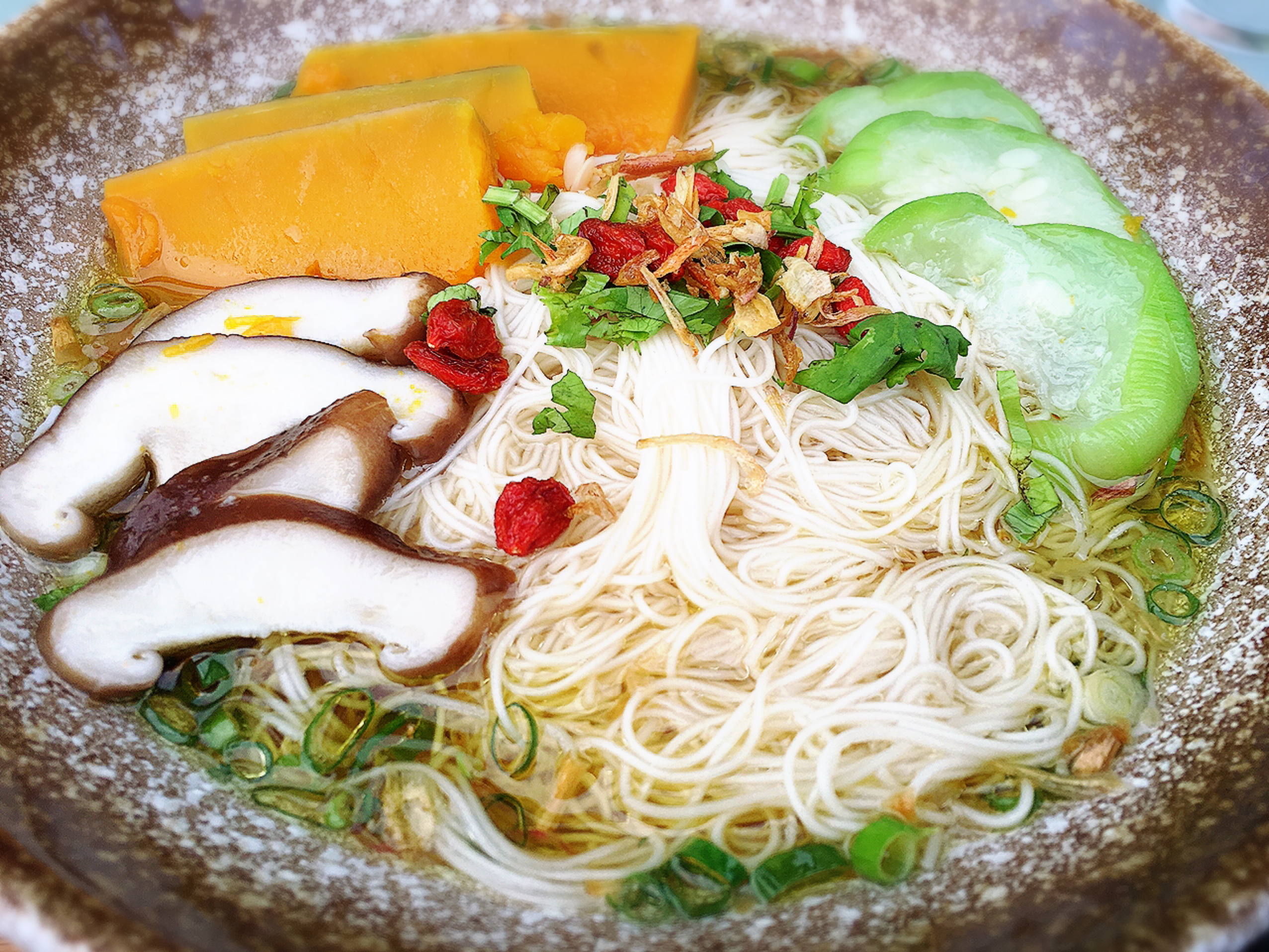 |
| Tea oil thin noodles |
 |
| The view from Amber Coffee |
As the sun set, we headed back to Taiping for the evening and our driver headed back. We stayed at "Taiping Old House B&B" (太平古厝民宿) in Taiping village, which has futon-style beds on raised wooden floors and a traditional-style courtyard where you can hang out. It's set back from the road a little (you can't easily drive a car in; I'm not sure you can drive in at all, in fact.)
While you can get here by bus from Meishan, the buses don't come often and you won't have any other transportation to good hikes. There are some scenic areas nearby, though. Even more annoyingly, Meishan isn't exactly close to any other transportation networks. There are buses to Chiayi city and Douliu, where you can catch onward buses and trains, but just getting to these cities, which are not that far away geographically, will take hours by bus.
Taiping does have a 'tourist street' with various products for sale, and drivers do come here on day trips. Try going during the week if you can. The good news is that the closest train station on the Alishan railroad is Dulishan (獨立山), which is 6kms away. That means you won't get as many people.
I don't know what Dulishan is like as I haven't been, but it looks like there's another suspension bridge out that way. Theoretically you might be able to get a ride from there to Taiping, though I wouldn't try it. It would be like ending up at one of the smaller stations on the Pingxi Line and hoping to get a taxi. Theoretically possible but deeply unlikely.
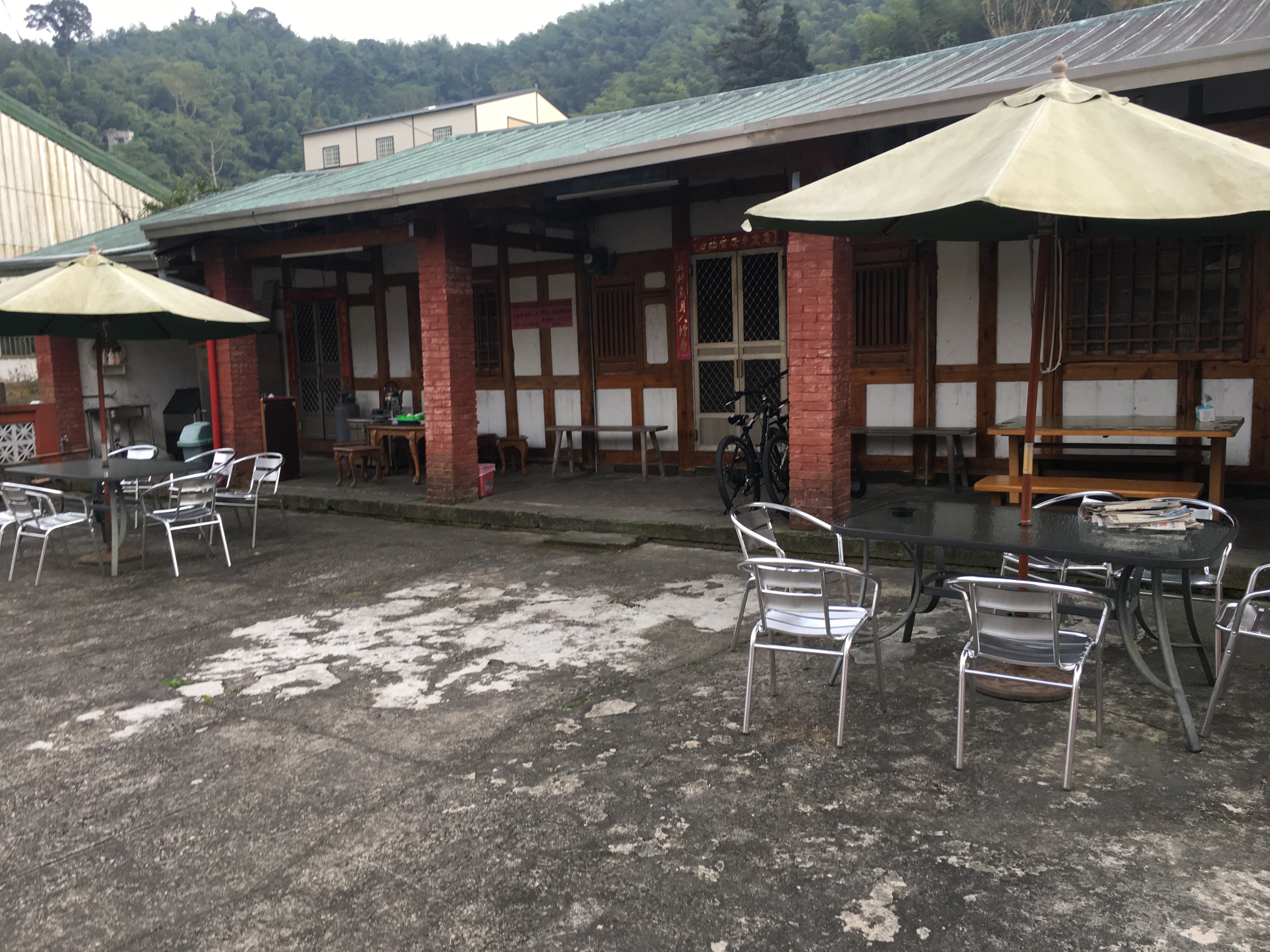 |
| Old House B&B |
The next morning our driver picked us up and drove us to Longxing Temple (龍興宮), a sort of down-at-heel but well-known temple in the mountains with hiking trails branching off from - surprisingly enough - behind the outdoor restrooms.
By the way, some local aunties use bitter tea oil, a byproduct of tea production, to make soap. You can buy it at the temple, it's piled up (well-wrapped in plastic) by the restrooms. Take a pack of 3 and put NT$100 in the money box. It's on the honor system. I find it's a great facial soap for oily skin, with the tea oil having anti-bacterial properties.
 |
| Viewpoint along the road to Longxing Temple |
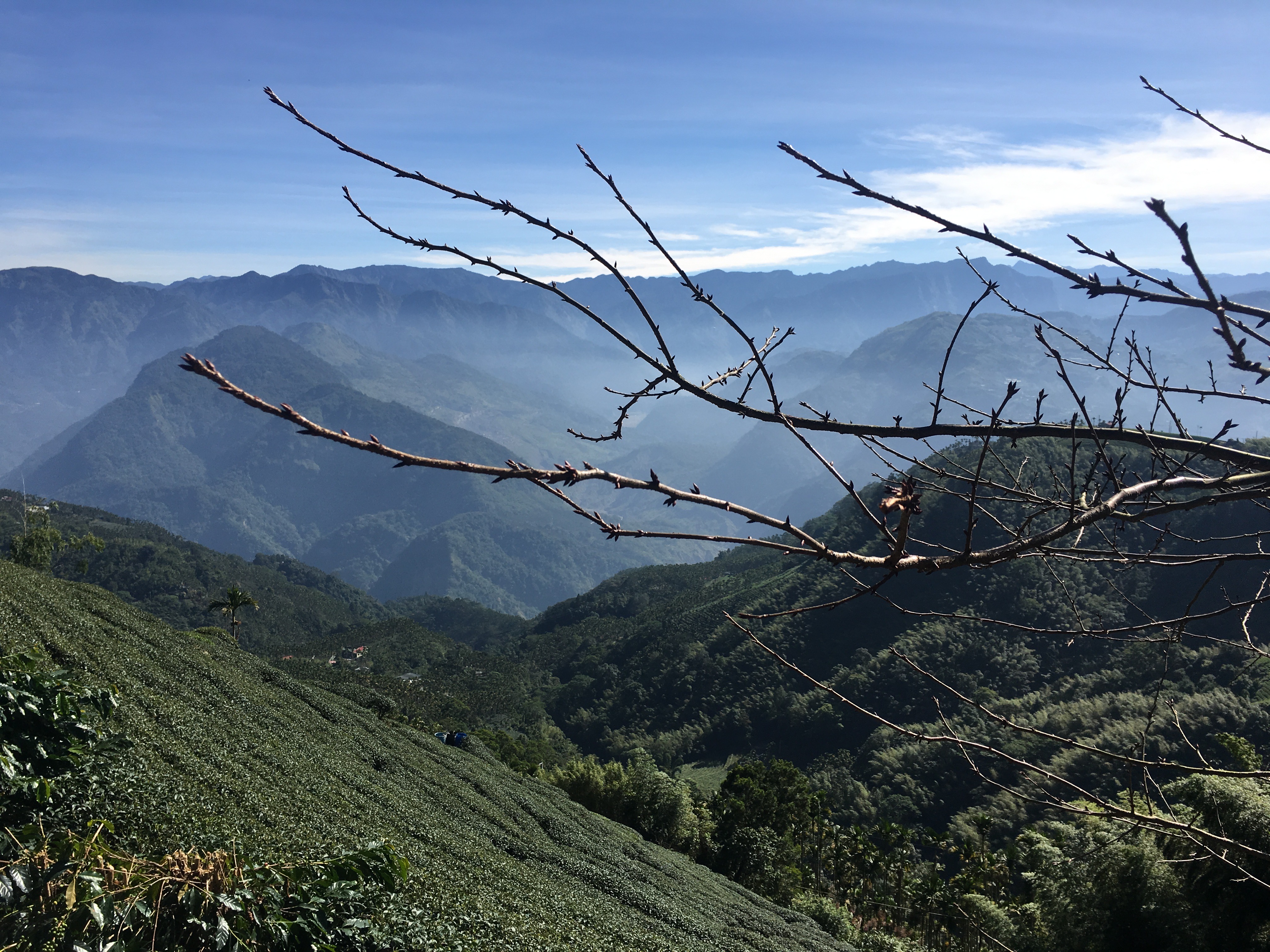 |
| More roadside views |
If you hike up behind the temple, you get to a scenic lookout facing west, out towards the Taiwan Strait. Our driver said that on a clear day you could see all the way to Penghu. Sadly...
 |
| Pollution! |
I'm all for de-nuclearization because Taiwan hasn't shown it can capably build and maintain safe nuclear plants, and I don't know what to do with the spent fuel rods. We need renewables. But...are we sure we want to go back to fossil fuels in the meantime? Looking at this, I'm not so sure. It looks suffocating. Ilha Formosa can do better.
Keep going past the scenic lookout to the left (if I remember correctly), up a tiny, less-used path, and you end up on some old wooden stairs in a bamboo-filled forest trail. There's a sort of summit with a market and a few logs and rocks you can "sort of" sit on, though they're not there for that purpose.
Then, as you reach the top, you see a break in the bamboo up ahead...
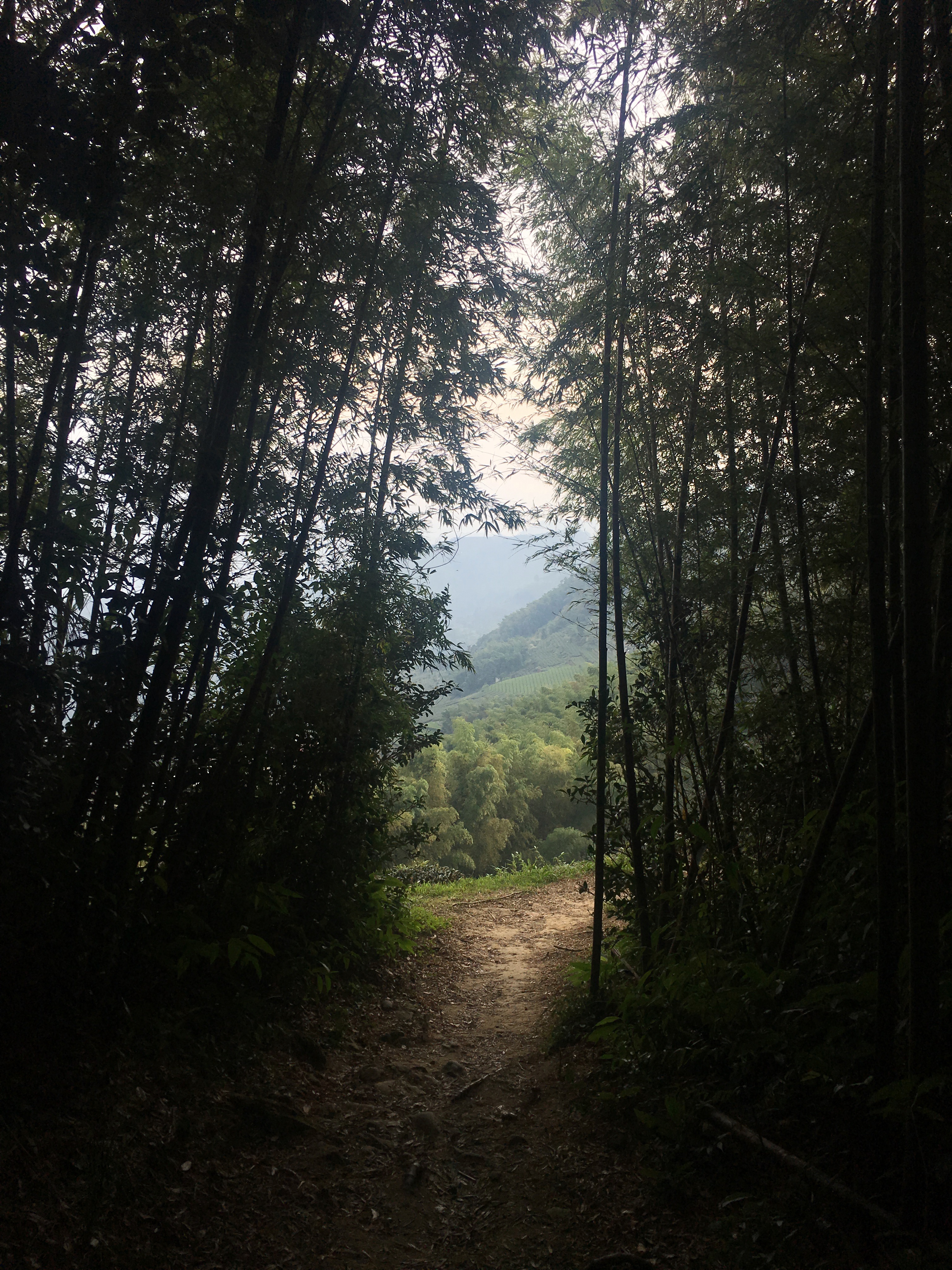 |
| Hiking up behind the temple |
...and that's where the tea fields start. The other bonus is that your view to the east and the mountains beyond opens up. It's amazing, how different the air quality is. Looking out over the plain towards the strait, it's a sea of wheezy gray. Look east towards the mountains and it's clear and luscious.
You can follow the trails in the tea fields that are made for the farmers and tea-pickers all the way back to Taiping if you want, though there's almost no shade. Bring a hat and sunblock if you head this way.
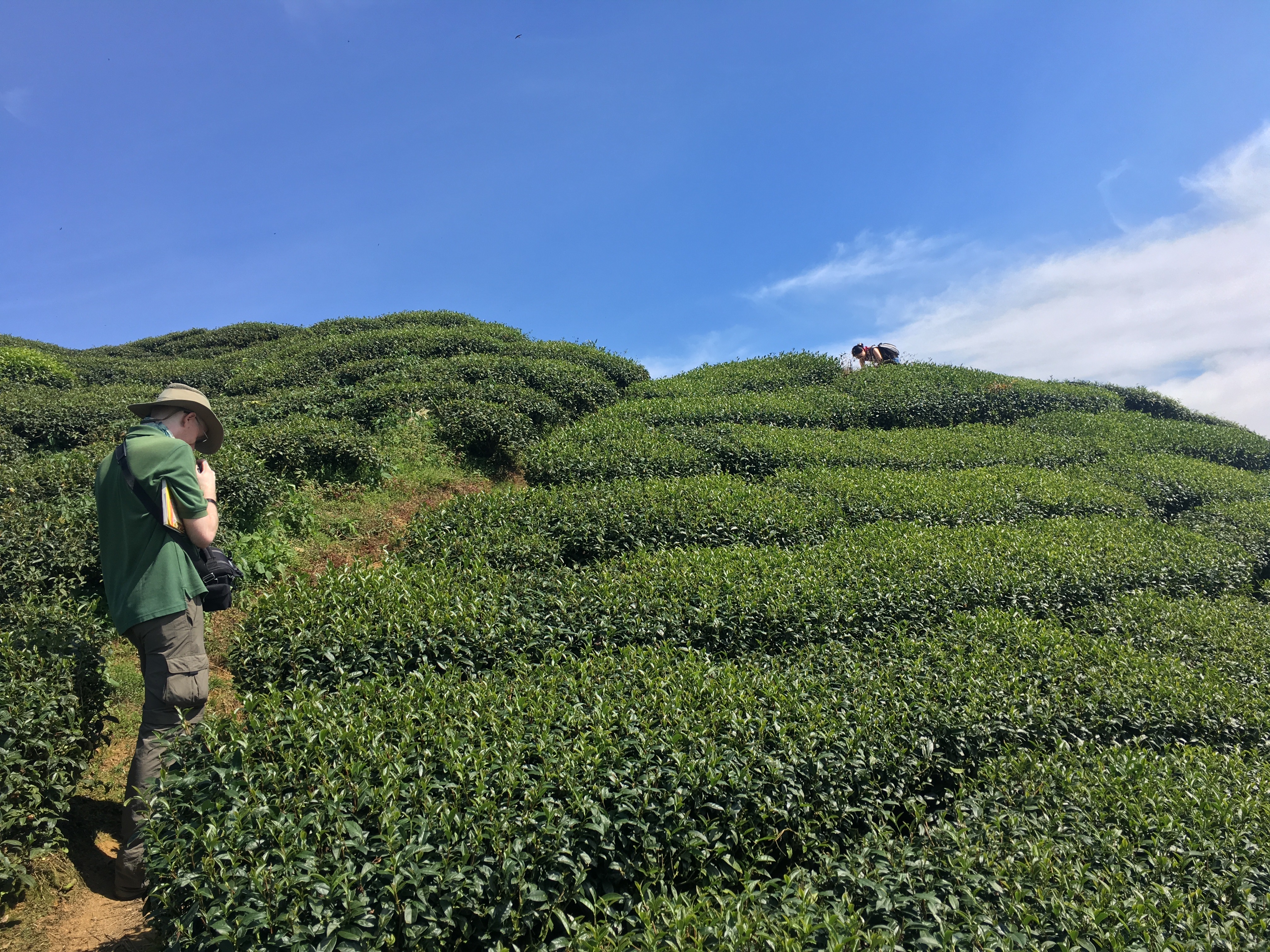 |
| No shade |
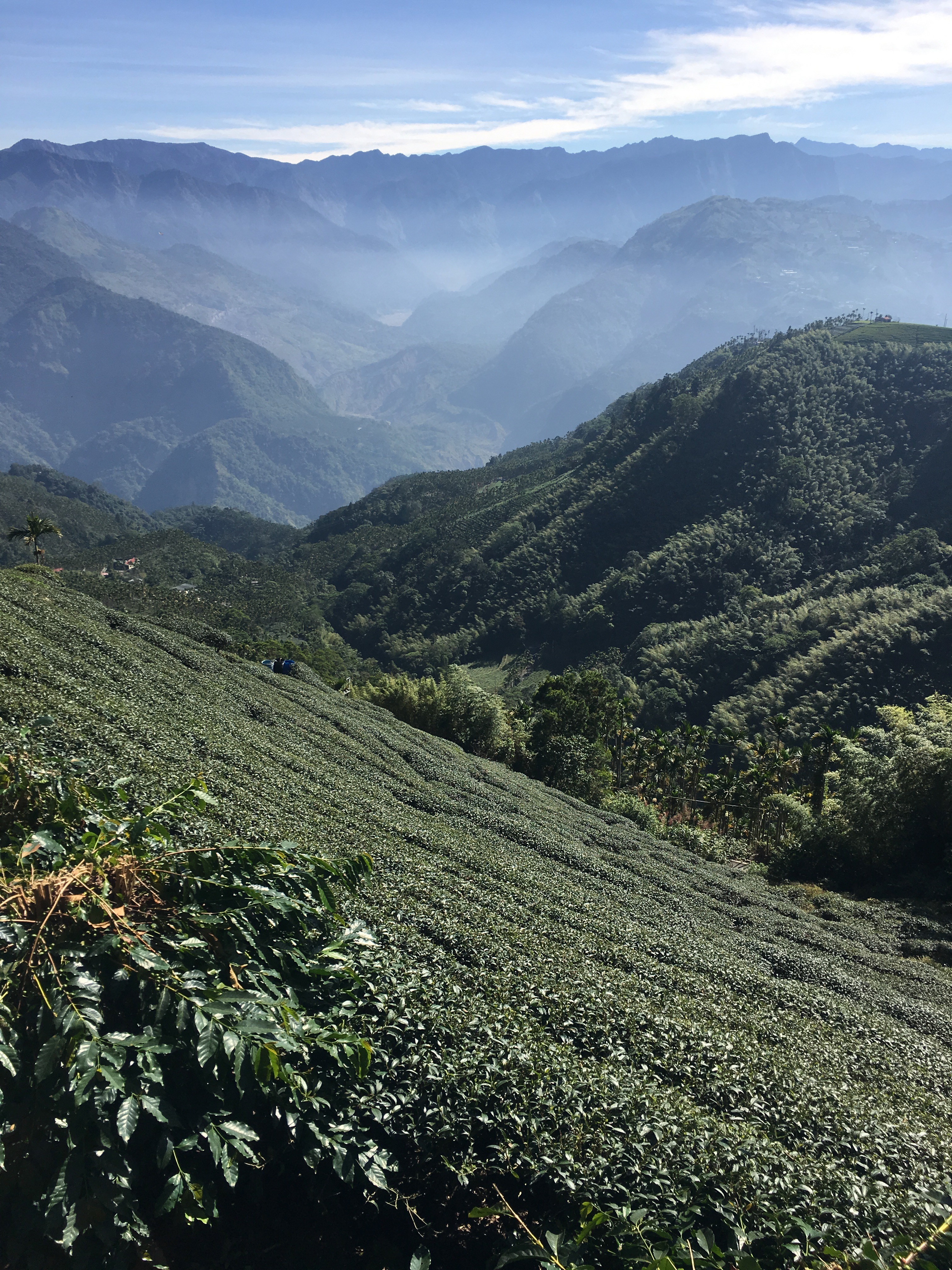 |
| But the views are insane |
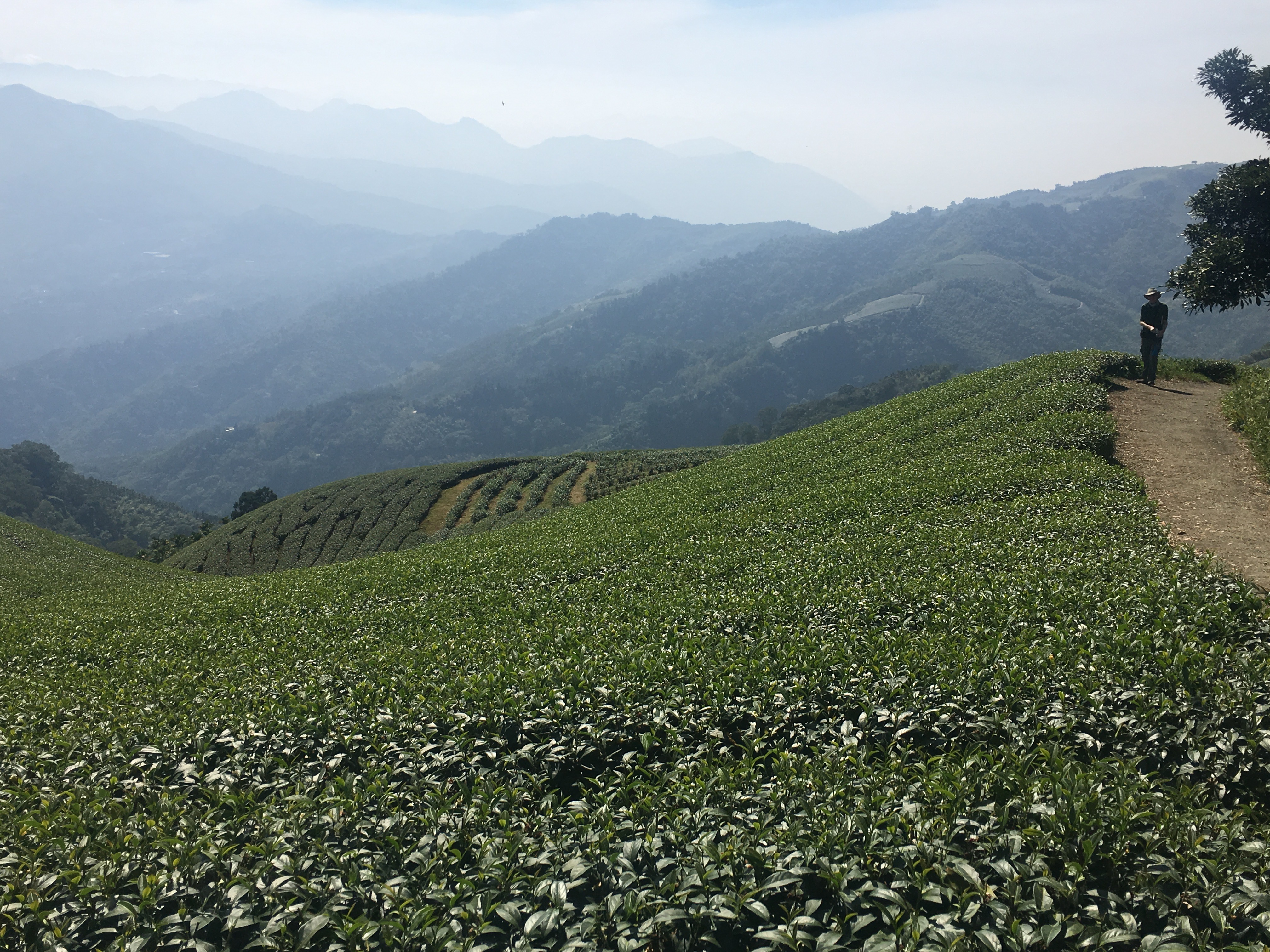 |
| You can keep going this way for quite some time, if you want. |
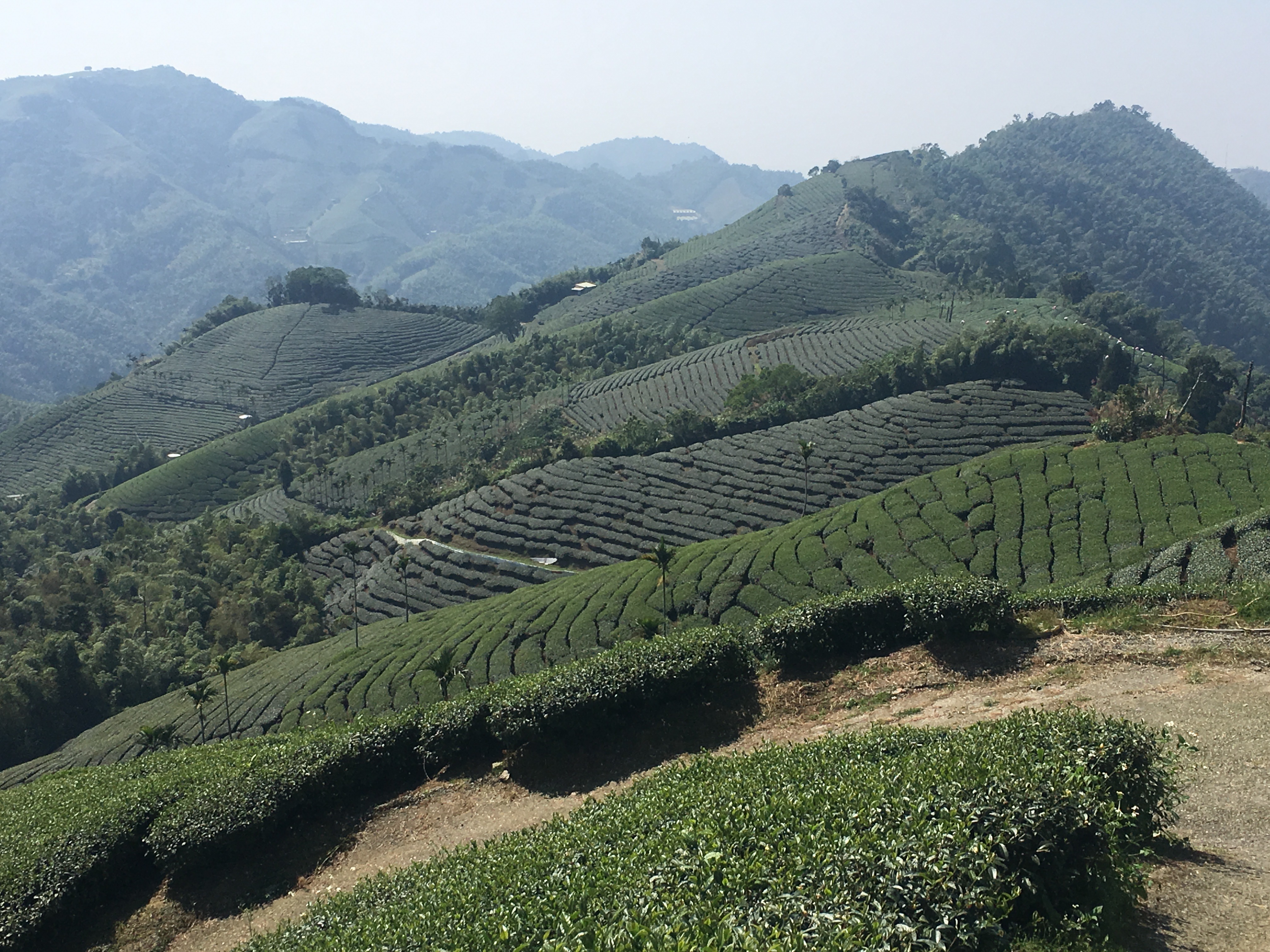 |
| This is where a lot of your "High Mountain Oolong" really comes from |
We stopped for lunch at 嘉義梅山二尖山休閒茶園 (translates to Chiayi Meishan Second Sharp Mountain Tea Recreation Park - bit of a mouthful). Get the chicken with fried ginger - you can eat the ginger. There's also a scenic lookout nearby with a guy who makes coffee on the spot in a portable setup, and he'll bring the coffee to you if you sit outside at the nearby restaurant.
This is a heavily Taiwanese-speaking area, so in addition to there not being much spoken English (if any - we used Mandarin exclusively), a lot of people have thick accents even in Mandarin.
 |
| The ginger chicken at 嘉義梅山二尖山休閒茶園 |
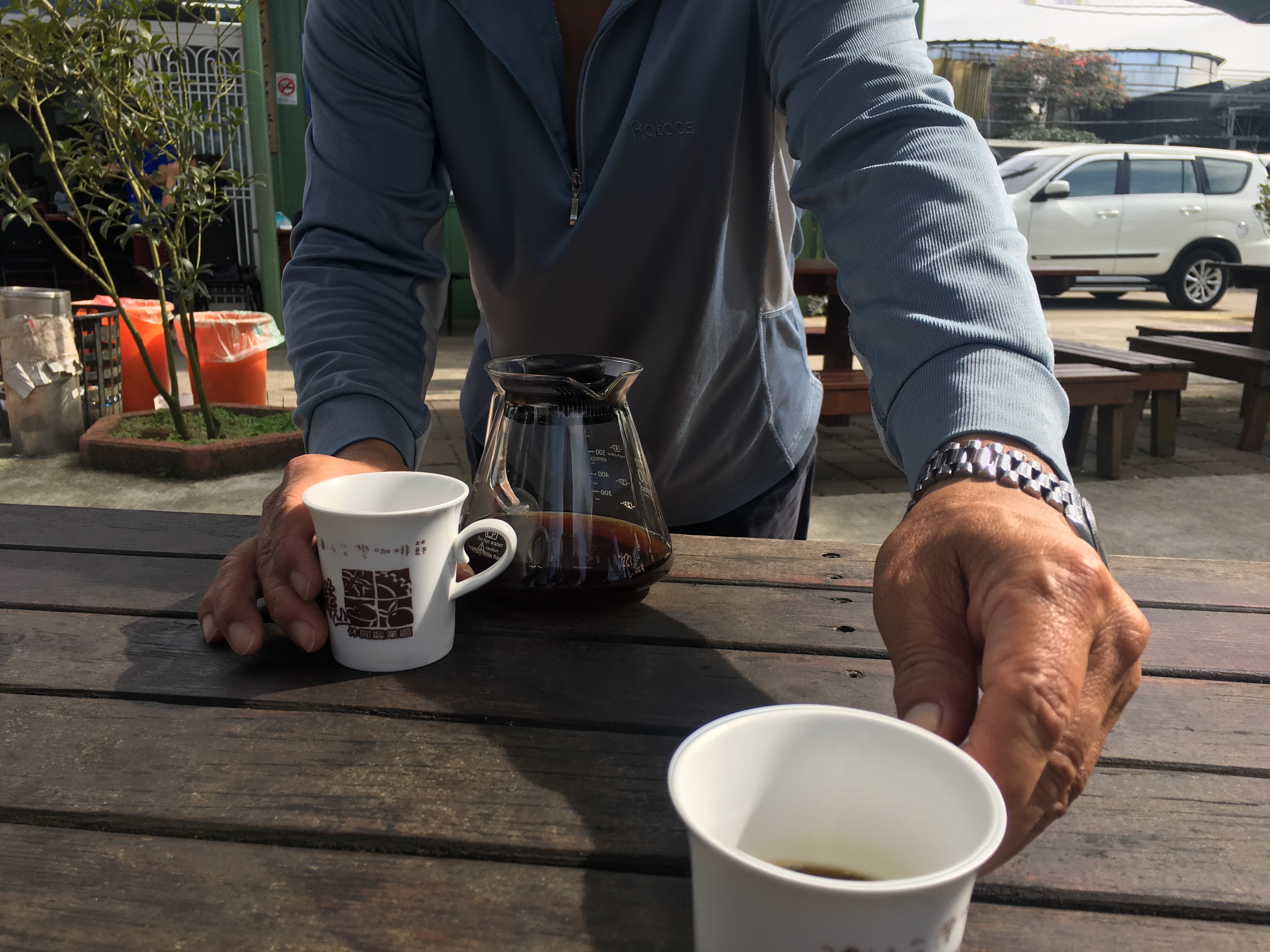 |
| Coffee dude |
This whole area is known as Erjianshan (二尖山), and you can get here by driving or taking - if I remember correctly - the other path leading from behind Longxing Temple, the 二尖山步道, which is fairly easy to find as it's a set of stairs with red railings over more tea fields and very little shade. (I'm not sure if I've got my geography exactly right, but all of these places are near each other. It won't be hard to find your way around, especially if you speak Mandarin or Taiwanese).
Behind Erjianshan, it's possible to keep going on a pretty easy trail (well-marked, easy to hike, has ups and downs though mostly ups) to Dajianshan (大尖山) on the Chiayi/Yunlin county line. You'll walk through more forest and pass more quiet tea fields, and see perhaps a few hikers - mostly locals out for a day walk.
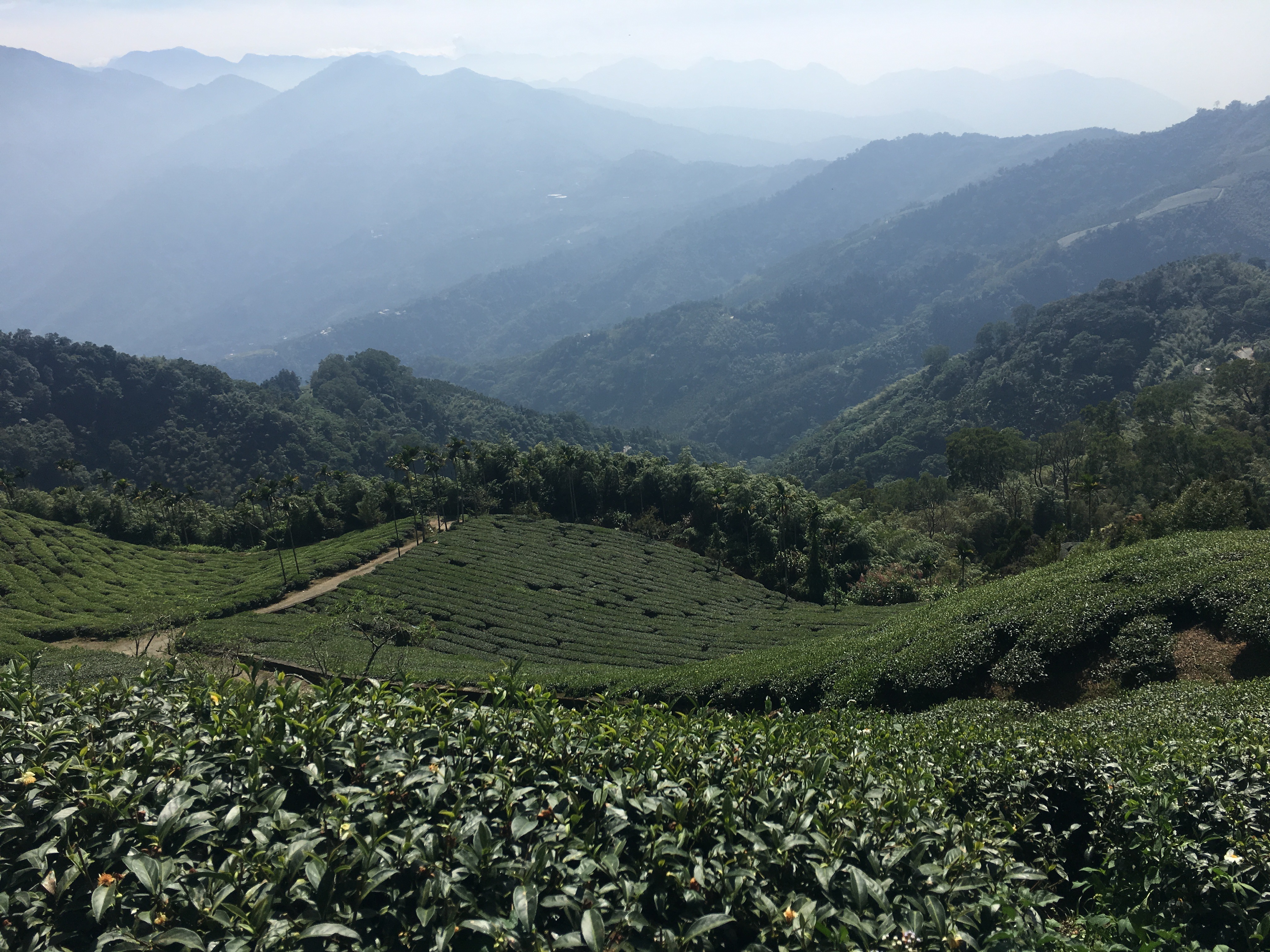
There's just one catch - don't come at the wrong time. We passed through as they were spraying one field with insecticide, and the fumes were overpowering.
Another catch - it's difficult to know when spraying time is.
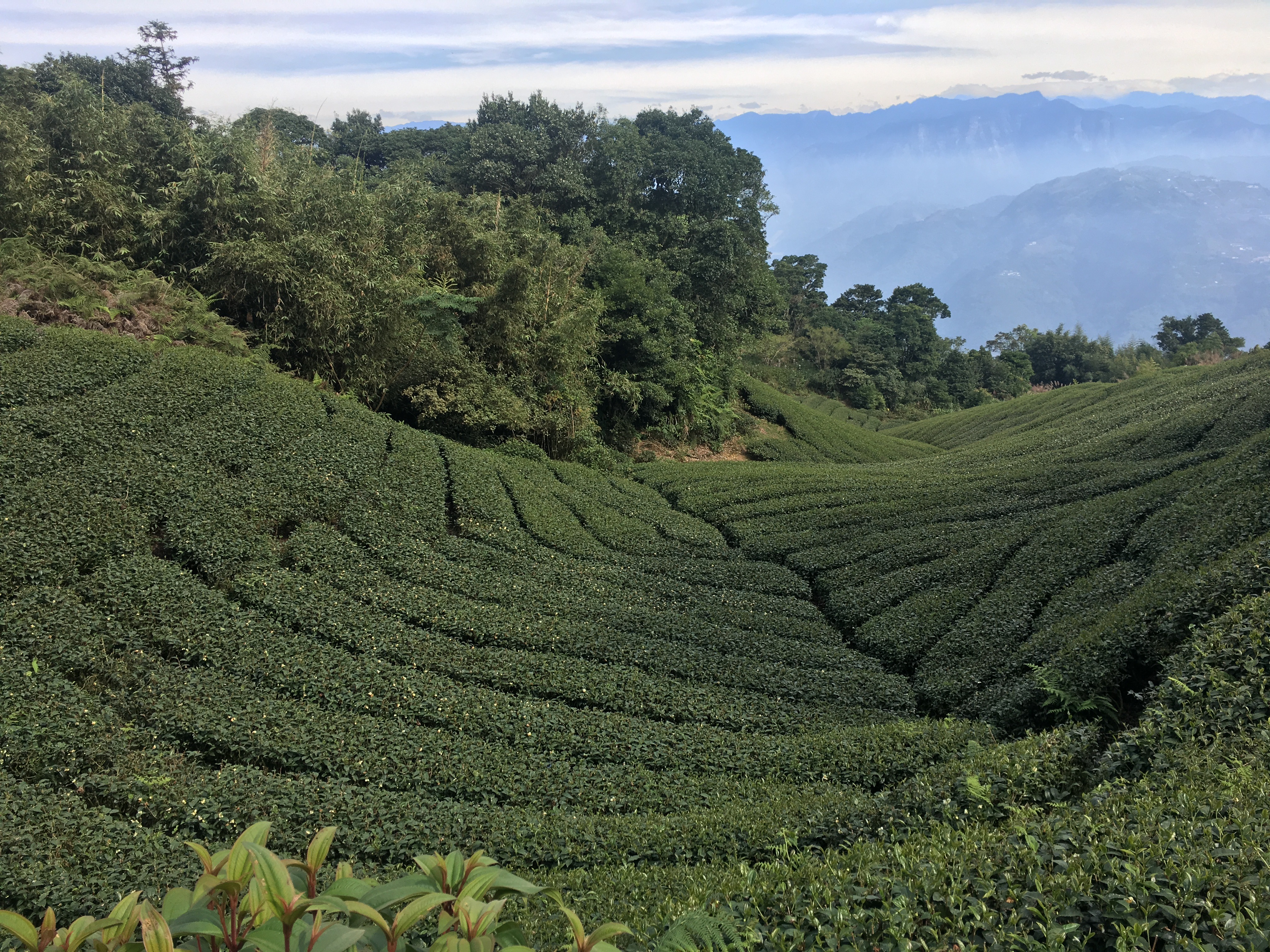
The view from Dajianshan looking towards the Central Mountains is, as you would expect, stunning. There's only a small break in the foliage, but the scene you get is wonderful.
Try to go early - by late afternoon the pollution starts wafting through the mountains and infesting the valley between this low range and the higher peaks beyond. We suspect this mist is mostly pollution, though slightly less gray:
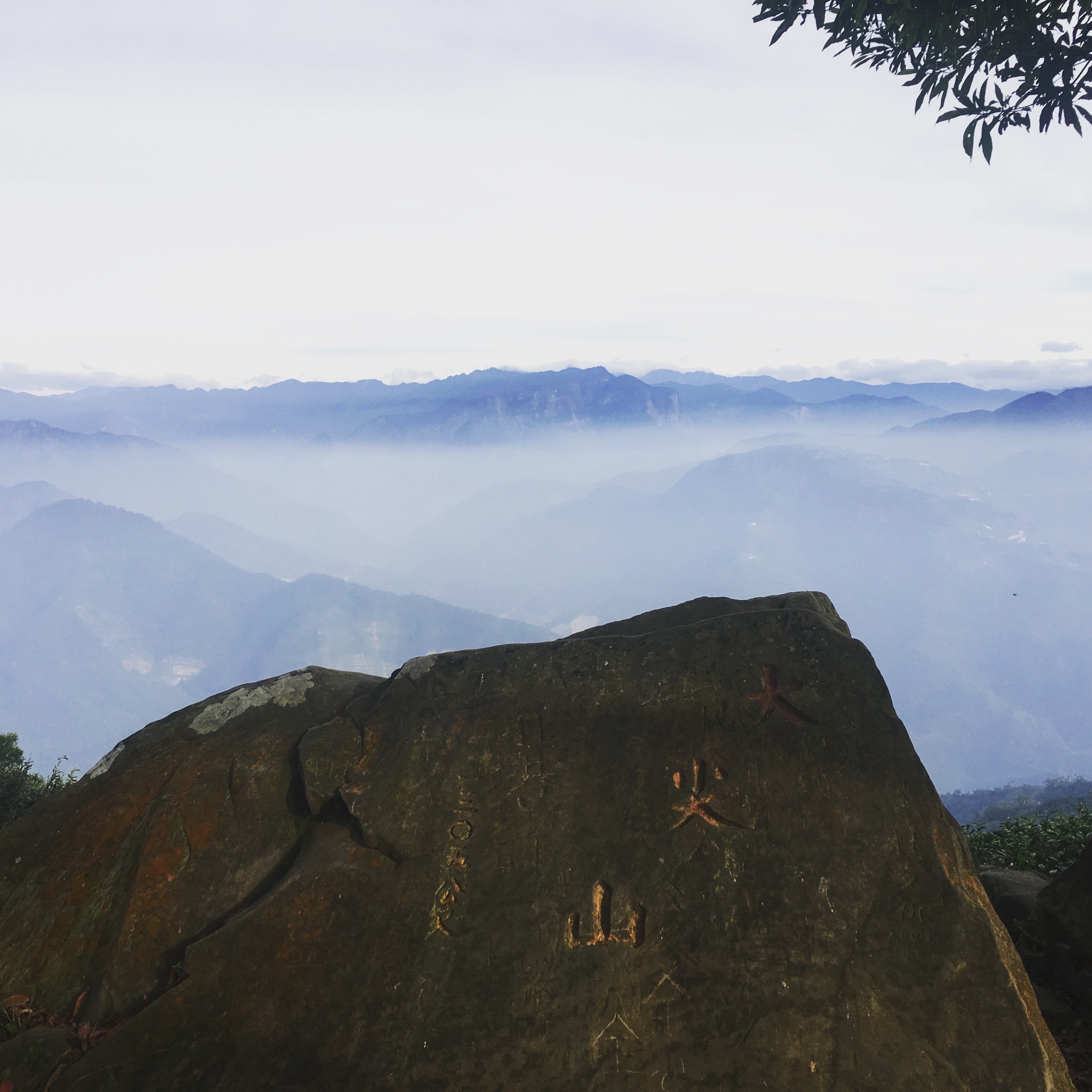
Our driver picked us up at the road where the trail ends, near a popular scenic overlook called 二尖山唬爛亭. There are several restaurants, coffeeshops and teahouses in the area with local food and products.
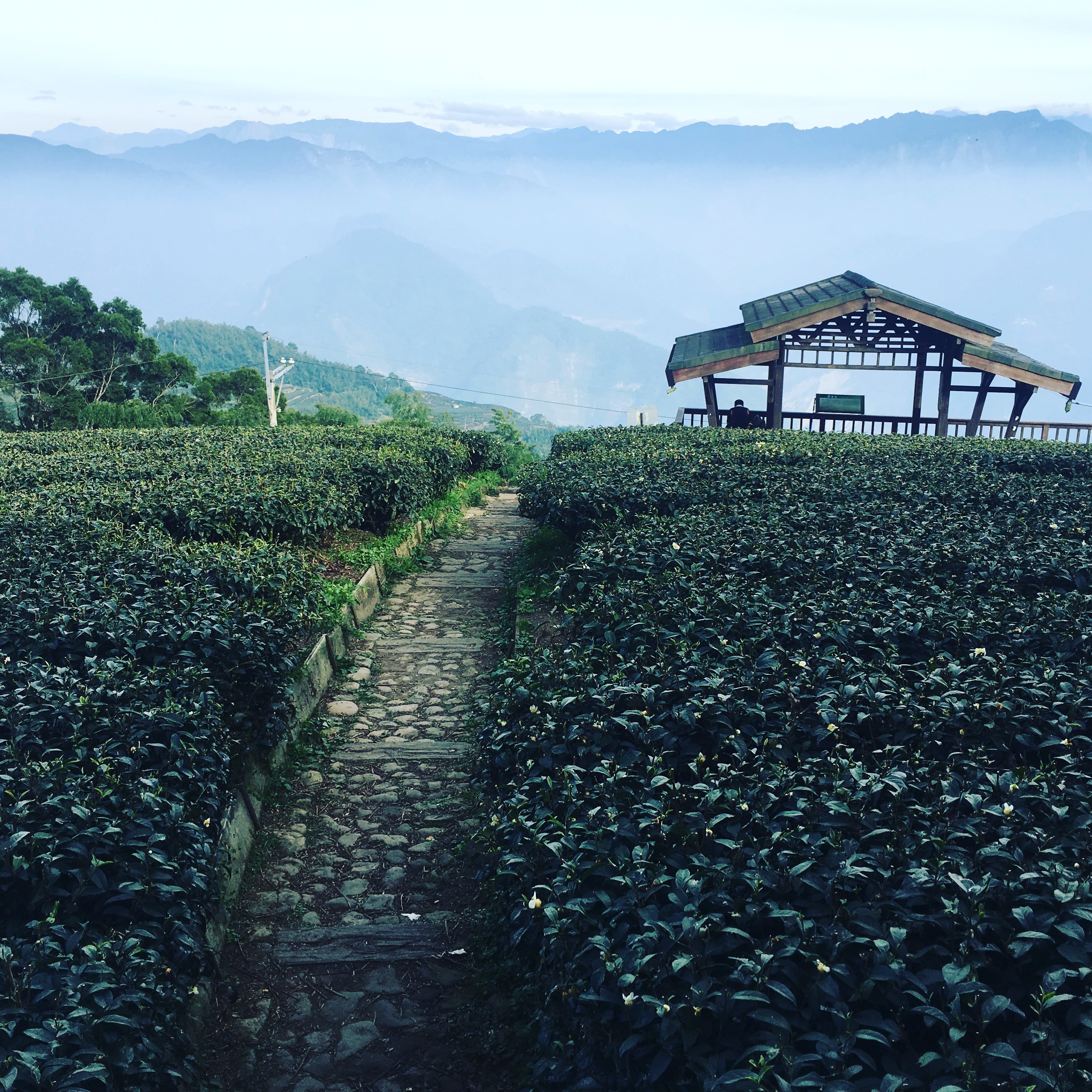
After our hike we headed back to Taiping to relax for the evening. There aren't many restaurants open after dark in Taiping.
The next morning our driver picked us up at Old House and took us to Douliu in Yunlin County instead of Chiayi - a few stops closer on the train, and we could get some famous Douliu squid thick soup (a favorite of mine). We paid our driver, which came to a few thousand NT each for the three of us - pretty sweet deal for several days of being on call - stowed our bags in lockers at the train station and bought train tickets for an express train leaving a few hours later. The bag stowing was really crucial, as I'd packed for both the heat, sun, beach and festival atmosphere of Donggang, the cold mountain air and hiking.
Then we headed out for dinner in Douliu before catching our train back to Taipei. We arrived late and tired, but happy.
























